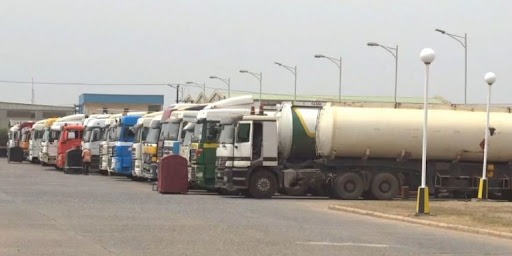Nigeria faces the specter of yet another fuel scarcity crisis as the Nigerian Association of Road Transport Owners (NARTO) announced its intention to halt the transportation of petroleum products starting next Monday.
The decision comes as a response to the soaring costs of operations, particularly the exorbitant prices of diesel needed to fuel their trucks.
Join our WhatsApp ChannelNARTO President, Yusuf Othman, explained the dire situation, stating, “What we spend on operations is more than what we get in total.” He emphasized the unsustainable nature of operating at a loss and declared the imminent suspension of operations starting Monday.
Efforts to seek intervention from key stakeholders, including the Federal Government and industry players, have proven fruitless, with Othman lamenting the lack of response to their appeals for assistance.
The market dynamics further compound the challenges faced by NARTO members, with freight rates remaining stagnant despite the significant depreciation of the naira against the dollar.
Othman highlighted the incongruity of maintaining the same freight rates established during the previous administration, despite the dramatic fluctuations in currency value.
The association’s grievances extend beyond the cost of operations to encompass a myriad of systemic issues plaguing the petroleum transportation sector. Poor road conditions, traffic congestion, inadequate parking facilities, delayed payments, and security concerns are among the myriad challenges confronting tanker drivers.
Furthermore, policy and regulatory inconsistencies exacerbate the situation, hindering efficiency and stifling competition. NARTO underscores the urgent need for reforms to address these systemic issues and ensure the viability of petroleum transportation in Nigeria.
READ ALSO: Petroleum Tanker Drivers Threaten Strike In October
As the nation teeters on the brink of yet another fuel crisis, the repercussions of a potential shutdown by NARTO members loom large, threatening to exacerbate an already precarious situation for consumers and the economy at large.
Emmanuel Ochayi is a journalist. He is a graduate of the University of Lagos, School of first choice and the nations pride. Emmanuel is keen on exploring writing angles in different areas, including Business, climate change, politics, Education, and others.




















Follow Us